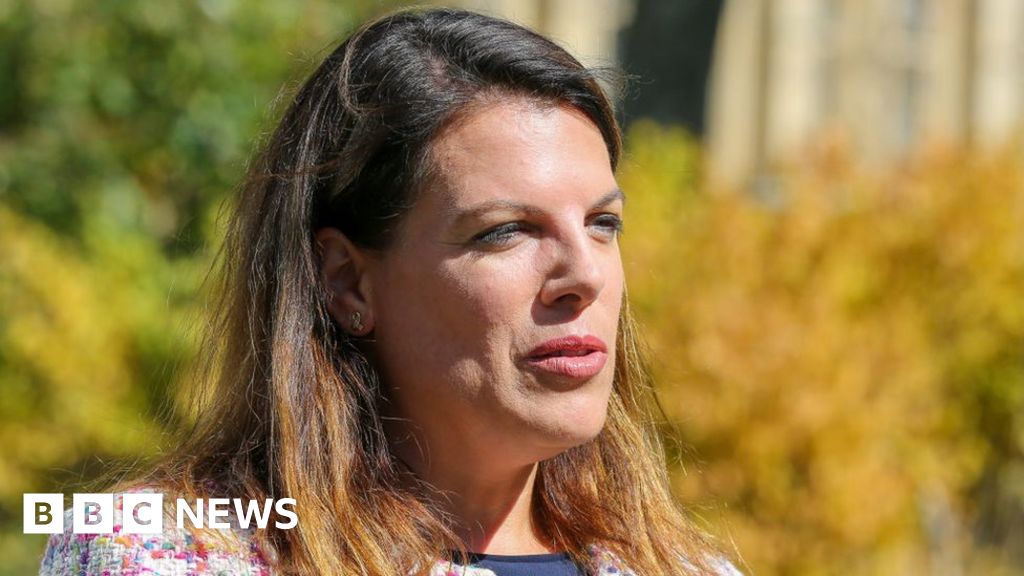Calls for abortion law reform after mother jailed

Image source, Getty Images
Conservative MP Caroline Nokes has called for a debate in Parliament on abortion laws
Parliament should debate overhauling abortion rules after a woman was jailed, the chair of the Commons equalities committee has said.
Caroline Nokes MP told the BBC the 1861 law used to prosecute mother-of-three Carla Foster was “out of date”.
Campaigners urged reform after she received a sentence of 28 months, 14 of which will be spent in custody.
Foster was between 32 and 34 weeks pregnant when she took medication acquired via the “pills by post” scheme introduced during lockdown, Stoke-on-Trent Crown Court heard.
Abortion is legal up to 24 weeks, and the procedure must be carried out in a clinic after 10 weeks.
Foster was initially charged with child destruction, which she denied, and later pleaded guilty to an offence under Section 58 of the Offences Against the Person Act 1861 – “administering drugs or using instruments to procure abortion”.
Ms Nokes, who chairs the Commons Women and Equalities Committee, said MPs should “decide in the 21st Century whether we should be relying on legislation that is centuries old”.
The Tory MP told BBC Radio 4’s World Tonight programme: “This is not something that has been debated in any great detail for many years now.
“And cases like this, although tragic and thankfully very rare, throw into sharp relief that we are relying on legislation that is very out of date. It makes a case for Parliament to start looking at this issue in detail.”
Image source, Getty Images
Carla Foster obtained abortion pills after a remote consultation during lockdown
Labour MP Stella Creasy also called for urgent reform, telling BBC Two’s Newsnight programme: “I don’t understand in whose interests this case was.”
Madeline Page, director of the Alliance of Pro-Life Students, agreed the case was a “sad situation” and said she would welcome a parliamentary debate on abortion, although wanting to move the law overall in a different direction to Ms Nokes.
The British Pregnancy Advisory Service said it was “shocked and appalled” the “archaic law” had been used to prosecute Foster.
A spokesperson for the Crown Prosecution Service said cases like these were “exceptionally rare… complex and traumatic”.
They added: “Our prosecutors have a duty to ensure that laws set by Parliament are properly considered and applied when making difficult charging decisions.”
Prime Minister Rishi Sunak’s official spokesperson said he was “not aware” of any government plans to change abortion laws.
The CPS argued in court that Foster had been aware of abortion limits and had provided false information during a remote medical consultation.
Her defence said lockdown and minimising face-to-face appointments had changed access to healthcare, adding: “This will haunt her forever.”
Foster went into labour on 11 May 2020 and the baby was confirmed dead 45 minutes later.
- If you have been affected by the issues raised in this article, help and support is available via BBC Action Line
The 44-year-old from Staffordshire had moved back in with her estranged partner at the start of lockdown while carrying another man’s baby, the court heard.
Sentencing, judge Mr Justice Edward Pepperall accepted Foster had been “in emotional turmoil” as she sought to hide the pregnancy.
He said she was a good mother to her three sons, one of whom has special needs, and that a suspended sentence might have been possible if there had been an earlier guilty plea.
But he rejected appeals from women’s health organisations to pass a non-custodial sentence, saying it was the court’s duty to “apply the law as provided by Parliament”.













